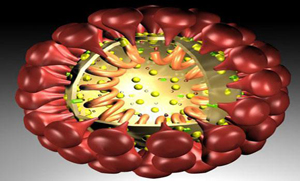Riyadh, May 14: The Ministry of Health said yesterday that it had stopped the spread of coronavirus from Al-Ahsa in the Eastern Province to other parts of the Kingdom.
The virus had reached Riyadh, Jeddah and Dammam, but not further incidences have been reported.
“No new cases of the virus were found in any part of the Kingdom,” Dr. Ziad Al-Memish, undersecretary to the Ministry of Health for Public Health, told Arab News.
So far, the Kingdom has reported 24 cases of the virus, including nine fatal cases. The recent cases included two men aged 48 and 58.
The first patient, a 48-year-old man with multiple coexisting medical conditions, became ill on April 29, and is in stable condition, while the latter fully recovered and was discharged from the hospital May 3 after falling ill on April 6. Al-Memish said the ministry has taken all precautions against the spread of the disease.
However, he added that in keeping with the transparency policy, the ministry would keep the public informed of all developments in this matter.
Keiji Fukuda, assistant director-general of WHO’s Health Security and Environment, who visited the Eastern Province on Saturday, said the Kingdom has taken the coronavirus situation seriously and the Saudi Ministry of Health has initiated public health actions, including intensifying surveillance, initiating investigations and ensuring control measures are in place.
“One of the reasons why more cases have been identified in the Kingdom may be because they have gone ahead to strengthen their surveillance system and lab capacity and network,” he said. “We know that the disease is caused by a virus from a group called coronaviruses.”
He said one member of the coronavirus family is the SARS virus. This new virus is not the SARS virus. He said the virus has infected people since 2012.
Search
Coronavirus is ‘not spreading’
May 14, 2013





Comments
Add new comment